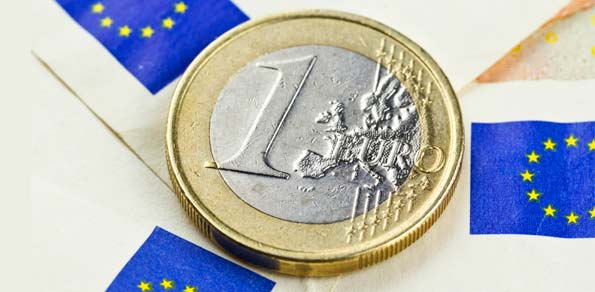The fact that the European Central Bank didn”t change its key interest rates or announce any new policy initiatives yesterday came as little surprise to financial markets. Neither were there any dramatic changes in the tone of comments made by ECB President Mario Draghi at the monthly press conference that followed today’s Council meeting of the ECB Governing Council.
A fractional rise in money market interest rates and in the FX value of the Euro suggests some had expected a clear softening of the ECB’s stance to be signalled.
Instead, there were subtle signs that recent weakness in survey data and signs of a continuing deterioration in the jobs market are having some impact on ECB thinking. These poorer numbers prompted Mr Draghi to emphasize the “prevailing uncertainty” in the current environment.
At very least, we remain some considerable distance from any tightening of ECB policy but a more intriguing issue raised by today’s comments is what scale of deterioration in economic conditions might be required to prompt the ECB to consider easing policy further.
A number of subtle changes to today’s ECB press statement suggest the ECB recognizes increased risks to the downside for Euro area activity and that those of a more dovish disposition have gained a greater measure of influence.
The first paragraph reflects the significant weakness seen in a number of survey indicators for April by highlighting the “prevailing uncertainty” in the current environment although the statement goes on to say that:
[quote]economic activity is expected to recover gradually over the course of the year[/quote]
In response to a question, Mr Draghi noted that recent indicators weren’t enough to change the ECB’s expectations for a gradual recovery but he added that the outlook would probably be clearer next month when new ECB forecasts are presented.
Investors think that the ECB thinking may also be influenced by revised expectations of the negative impact of austerity measures on economic growth. In an unusual discussion of fiscal consolidation towards the end of today’s press statement, the ECB acknowledged that “the necessary fiscal adjustment is weighing on near term economic growth.”
The press statement goes on to suggest that this adjustment will mean that:
[quote]in an environment of enhanced confidence in fiscal balances, private sector activity should also be fostered, supporting private investment and medium term growth[/quote]
This means that the payback for adjustment in terms of a recovery in activity may not materialize for some time. Although these comments don’t provide any particularly new insight, their inclusion in the ECB press statement represents something of a departure and seems to reflect a greater appreciation of the immediate consequences of significant budgetary adjustments given the fragility of current conditions.
European Central Bank President Mario Draghi tied his entire message and the shift in thinking into one important statement when he said there was “no contradiction” between euro-zone countries adopting a “growth compact” alongside a “fiscal compact.”





